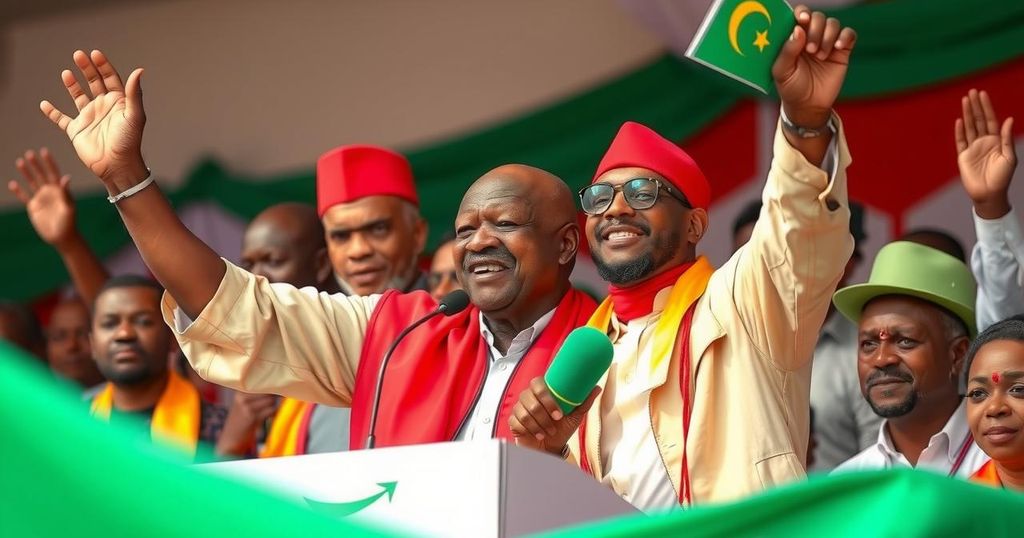Chad’s ruling party, the Patriotic Salvation Movement, won 124 of 188 seats in parliamentary elections largely boycotted by opposition parties. With a participation rate of 51.56%, critics termed the election a “charade.” The election is seen as part of a transition process after President Mahamat Idriss Deby’s military takeover, amid regional security challenges, including Boko Haram threats.
Chad’s ruling Patriotic Salvation Movement has claimed a significant victory in the recent parliamentary elections, securing 124 out of 188 seats in the National Assembly. The vote, which took place on December 29, was marked by a notable boycott from over ten opposition parties, including the prominent Transformers party. Election participation was reported at 51.56%, a figure contested by opposition figures who have suggested it indicates widespread disenchantment with the electoral process. This election represented the first parliamentary vote in over a decade, framed by President Mahamat Idriss Deby as a step towards democracy following his military ascension to power in 2021 after the death of his father, long-standing President Idriss Deby Itno.
Critics have branded the elections a “charade,” fearing a repetition of the earlier disputed presidential election, which faced claims of a lack of credibility from observers. Amidst internal political strife, Chad is also grappling with regional threats, particularly from the militant group Boko Haram, and is reassessing its historical military cooperation with France, experienced a notable backlash in neighboring countries.
President Deby emphasized that the elections would facilitate the long-awaited era of decentralization, which he asserts is desired by the Chadian populace. Despite these claims, the political atmosphere remains tense, especially following a thwarted assault on the presidency described by the government as a destabilization attempt.
The recent parliamentary elections in Chad were conducted under a backdrop of political tension and calls for a transition to democracy. Following the death of long-time President Idriss Deby Itno, his son, Mahamat Idriss Deby, assumed power in a military coup in 2021. The December elections, which included regional and municipal positions, were the first in over a decade, following a period of military-led governance. The opposition’s boycott signals a significant lack of faith in the electoral process, which is coupled with ongoing security challenges in the region.
In conclusion, Chad’s parliamentary elections have raised significant concerns regarding their legitimacy due to widespread opposition boycotts and low participation rates. While President Mahamat Idriss Deby presents these elections as a pivotal move towards democratization and decentralization, the skepticism from opposition groups and critical observers casts doubt on the credibility of the electoral process. Continued security threats and the re-evaluation of military alliances further complicate the political landscape in Chad.
Original Source: www.aljazeera.com






